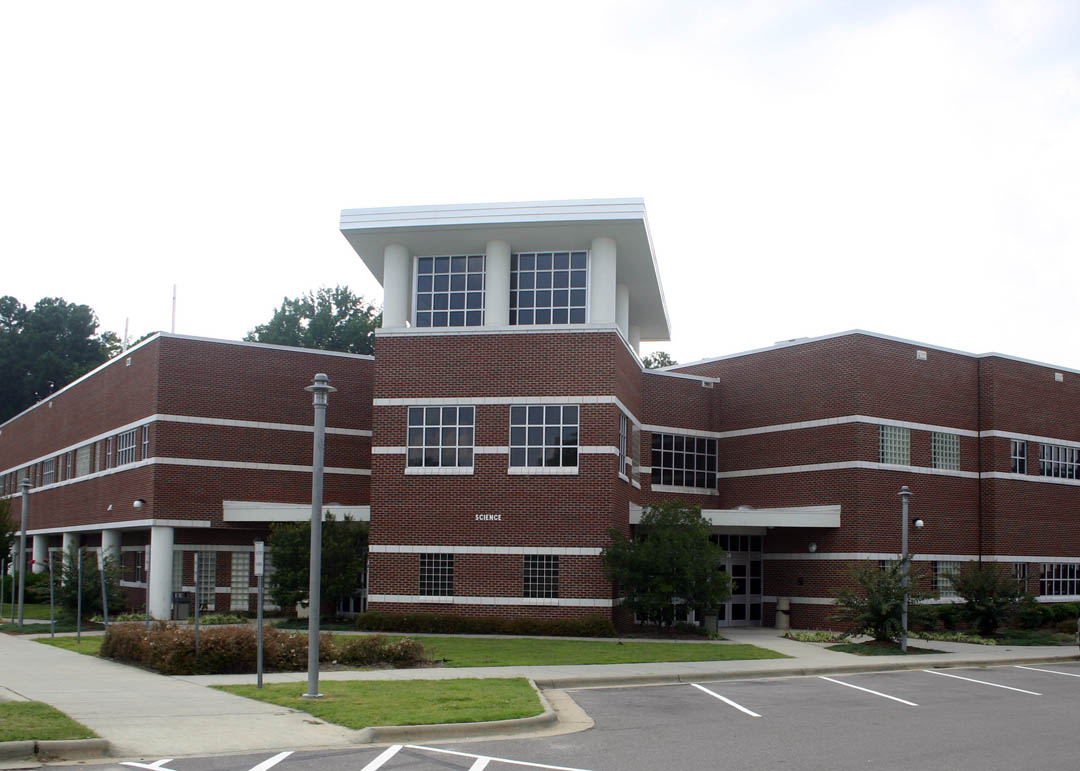
College News
CCCC growth among highest in state
11.21.2013 • Admin, Faculty & Staff, College & Community, College General, Continuing Education, Curriculum Programs, Students/Graduates
SANFORD - Central Carolina Community College is among the fastest growing institutions in the North Carolina Community College System, according to preliminary growth rate figures recently released by NCCCS's Office of Research and Performance Management.
The college ranks ninth among the state's 58 community colleges for year-over-year rate-of-growth for 2012 and 2013 in Fall Curriculum Full Time Equivalent enrollment. (FTE is a unit based on student enrollment. For reporting purposes, the enrollment number is adjusted downward to compensate for part-time students. That provides a standard measurement unit for comparison.)
From fall 2012 to fall 2013, CCCC's curriculum programs' FTE enrollment grew 3 percent while the average FTE enrollment for all N.C. community colleges declined 2 percent. Comparing fall 2011 to fall 2013, CCCC curriculum programs' FTE grew 6 percent while the average declined 4 percent.
The college's Continuing Education programs have also exceeded the state community college average growth rate. That FTE grew 25 percent in the past four years, ranking the college eighth in the NCCCS in its FTE growth rate. In the same time period, the community college average declined 3 percent.
CCCC programs such as the Small Business Center, Customized Industry Training, and self-supporting continuing education programs, which have also experienced increases, are not included in these figures.
While the growth is a welcome sign of responsiveness to area educational needs, there is a present and growing need for more facility space to accommodate all who want to come to CCCC, according to college president Dr. Bud Marchant.
"We have students eager to enroll, we have well-qualified instructors, we have the accredited programs, our communities have need for people with these skills, but we just don't have the space to accommodate more students in many of our programs, either curriculum or continuing education," he said.
For example, there are more than 640 curriculum students enrolled in a "holding pattern" waiting to gain admission to health programs. These students are enrolled and taking general education courses as they wait for a spot to open. Every year, CCCC's health care programs must turn away qualified students due to enrollment limits.
"Facility capacity is a significant factor in the limits that program accreditors place on our health program enrollments," said Jon Matthews, CCCC dean of University Transfer and Health Science.
This "holding pattern" is becoming more common as enrollment grows but facilities do not, particularly at the Lee County Campus.
An increasing number of students are taking some or all of their courses via distance education both for personal convenience and to get in classes that might not be accessible at a campus. For the fall 2011 semester, 2,418 were taking at least one distance education class. By fall 2012, that jumped almost 12 percent, to 2,707; and the fall 2013 distance education enrollment was 3,079, almost 14 percent higher than 2012.
There has not been a new facility constructed on the Lee Campus since the Science Building was completed in 2004. That building houses science classes, administration and faculty offices and conference rooms, and the Academic Assistance Center. Other buildings have undergone renovation, but more classroom and lab space is a critical need.
CCCC recently opened its Harnett Health Sciences Center, in Lillington in October, but, with the burgeoning need for healthcare workers, that will not relieve the congestion at the Lee Campus.
"For the college to serve the community we live in, we need new facilities," said Bill Wilson, Sanford attorney and a CCCC trustee since 1994. "Our growth over the past nine years has been extraordinary. We continue to grow to be attractive to students from all over the region, state and out of state. Students come, but do we have the facilities to support them? When it comes to health sciences, we don't."
More than 500 students graduated from CCCC at its spring curriculum commencement in areas such as healthcare, office technologies, and manufacturing. Almost 300 medical program certificates were awarded at Continuing Education's spring Medical Programs Graduation. Most of these graduates, both curriculum and continuing education, will stay in their local communities, helping to build up the economies and contributing to the quality of life.
"CCCC is an integral part of the communities we serve," Marchant said. "We grow together and prosper together. CCCC is committed to continuing the highest quality workforce and advanced education preparation possible. With our growing student population, the need for construction of additional facilities on the Lee County Campus has reached a critical level."

Central Carolina Community College is among the fastest growing institutions in the North Carolina Community College System, according to preliminary growth rate figures recently released by NCCCS's Office of Research and Performance Management. Both curriculum and continuing education Full Time Equivalent enrollment have grown while the average for state community colleges has declined. Growth is increasing the need for more facilities at the Lee County Campus. The Science Building (pictured) was completed in 2004, the last new building on that campus.
- Central Carolina Community College
- Serving Chatham, Harnett, & Lee Counties, NC
- 1-800-682-8353

